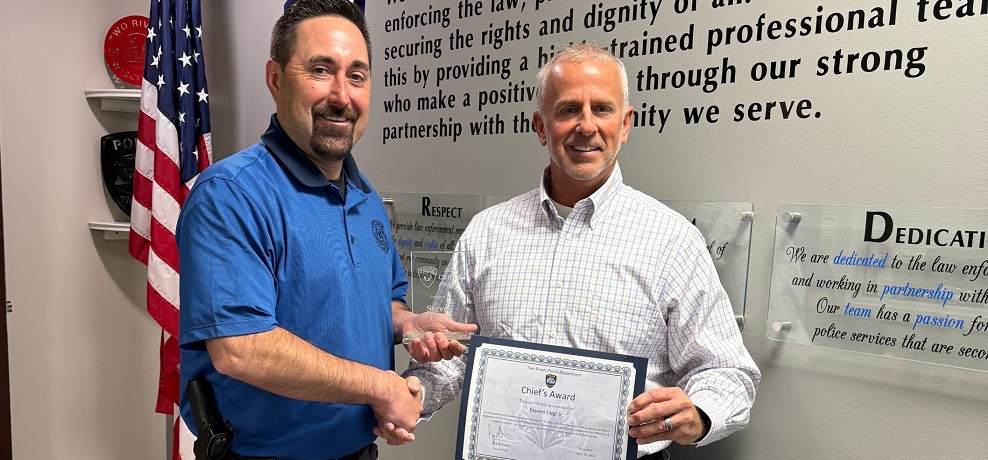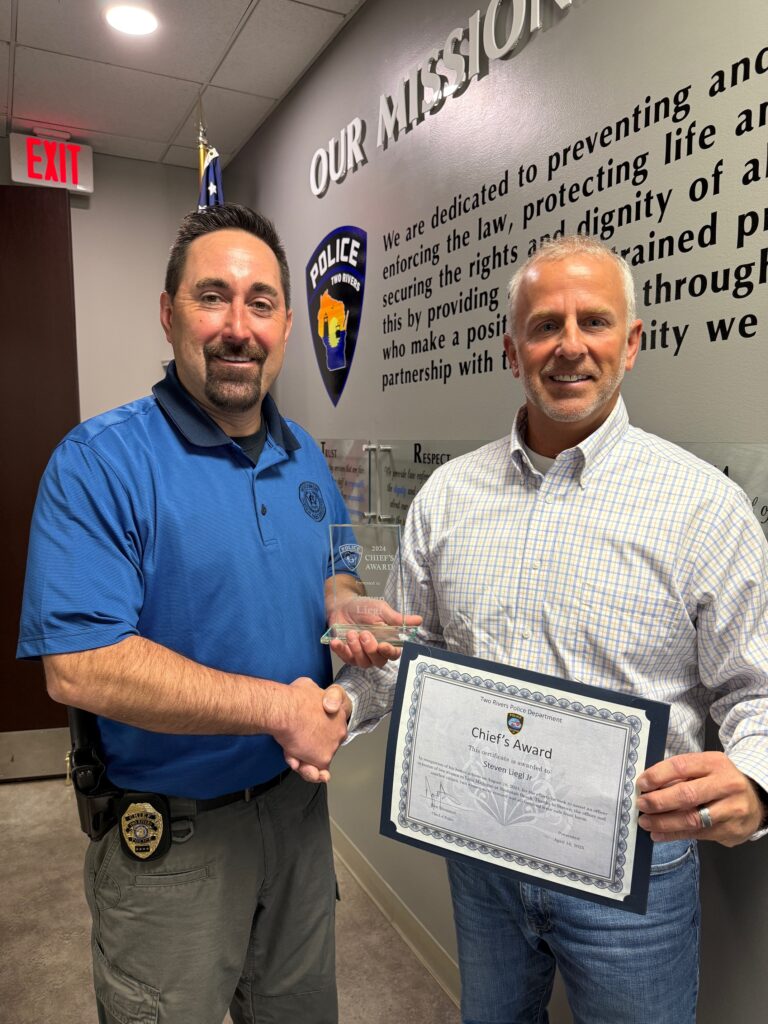As director — IT infrastructure and operations for WEC Energy Group, parent company of We Energies, Steve Liegl is used to helping people, but what he did last August was above and beyond his usual day-to-day troubleshooting.
Liegl and his family were enjoying a Sunday afternoon in Neshotah Park along Lake Michigan. The beach, located about 45 minutes southeast of Green Bay, was packed, but — with no lifeguards on duty and a strong undercurrent in the water — Liegl’s family, including his three children, planned to stay on land. A Two Rivers police officer was walking on patrol nearby.
“Someone ran up to the officer, who happened to be standing right by us. He told him there were two women in the water who were in trouble,” Liegl recalled. “The beach was so packed you couldn’t hear them yelling.”
Liegl, a former Marine, pulled off his watch and ran into the water, with the officer close behind.
“I could see the women needed help,” Liegl said.
He and the officer swam hundreds of yards to reach them. Police say the pair was in water 75 feet deep when they were rescued.
Because of the strong current, Liegl and the woman were pulled more than a quarter mile away from where they went in. The officer and the woman he helped ended up even farther away. Someone got flotation devices to them all, which helped. Still, it took nearly an hour from the time Liegl and the officer entered the water to when they reached shore.
“We all were exhausted but happy to be on land. The women thanked us for helping them,” said Liegl, who credits the survival training he received in the Marines with helping him not become a victim himself.
Liegl was awarded a Chief’s Award from the Two Rivers Police Department for his actions.
“I did what most people would do,” Liegl said. “I saw someone who needed help, and I did what I could.”
More about rip currents
According to the National Weather Service, rip currents are powerful, channeled currents of water that pull people away from shore. They typically extend from the shoreline, through the surf zone, and past the line of breaking waves. Rip currents can occur at any beach with breaking waves, including Great Lakes beaches.
If you find yourself in a rip current:
- Stay calm and don’t try to fight the current.
- Swim parallel to the shoreline until you get out of the current.
- If you can’t escape, float or tread water.
- Wave your arms and/or yell to call for help.


